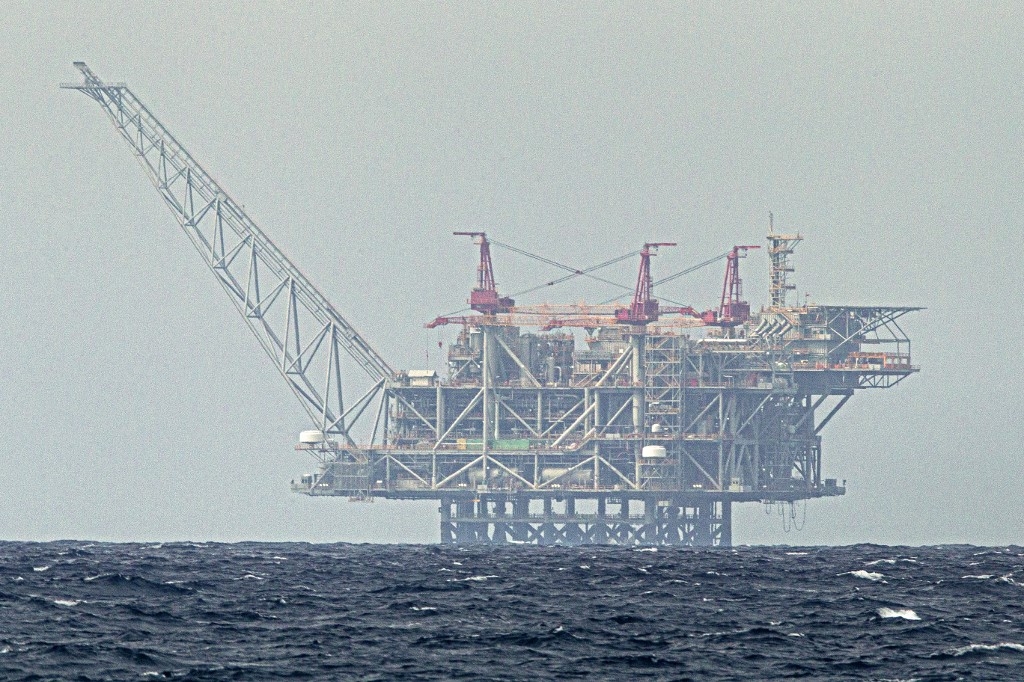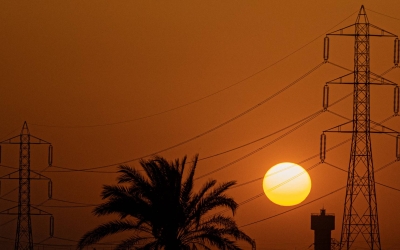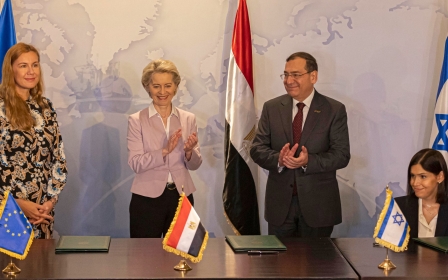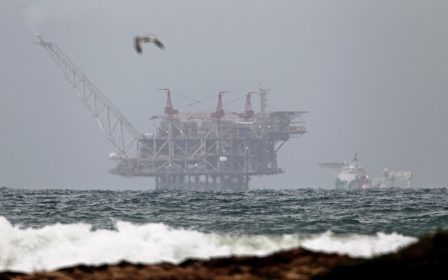Israel sees gas exports to Europe boom in wake of Russian invasion of Ukraine

Israel has seen a 50 percent increase in royalties from gas exports in 2022 buoyed by record-high global prices, as Europe experiences a looming energy crunch in the wake of Russia's invasion of Ukraine.
The country's gas production also surged more than 20 percent since the first half of the year, with the Israeli government planning to ramp up exports even more in a bid to meet growing demand from Europe.
Much of the increase in production came from the eastern Mediterranean's Tamar and Leviathan gas fields, Israel's largest. Exports to Israeli neighbours, mainly Egypt and Jordan, rose by 35 percent, with total production rising to 10.85 billion cubic meters year-on-year through June.
'In the case of replacing Russian gas with Israeli gas, the EU is simply swapping one occupying power with another'
- Grace O'Sullivan, Green Party MEP
In June, Israel, Egypt and the European Union signed a memorandum of understanding to boost Israeli gas production even more.
New MEE newsletter: Jerusalem Dispatch
Sign up to get the latest insights and analysis on Israel-Palestine, alongside Turkey Unpacked and other MEE newsletters
While Israel has been generally viewed as a regional power, the country's politicians have become acutely aware that geopolitical developments in Europe mean that Tel-Aviv could play a more significant role in meeting Europe's energy needs.
However, Irish Green Party member of the Europe parliament, Grace O'Sullivan, has expressed concerns about buying increasing amounts of gas from Israel.
"In the case of replacing Russian gas with Israeli gas, the EU is simply swapping one occupying power with another," O'Sullivan told Middle East Eye.
"It is remarkable to me that the president of the European Commission [Ursula von der Leyen] can condemn Israeli actions in terms of building settlements and the murder of journalists on the one hand and then fly to Tel Aviv to sign gas deals in the same month," said O'Sullivan.
In the wake of von der Leyen's visit to the country, Israel's former ambassador to the European Union, Oded Eran, said that Europe's energy predicament offers an opportunity for Tel-Aviv to deepen relations with Brussels.
Europe's energy distress has resulted in "diplomatic backsliding and a failure to uphold our very basic obligations to the Palestinian people, who continue to face persecution on a daily basis," said O'Sullivan, speaking about the agreement signed in June.
"It is also my understanding that the latest Memorandum of Understanding signed with Israel was the first in EU history to exclude mention of the Palestinian Territories," added O'Sullivan.
Israel's growing energy ambitions
Israel's ability to meet European demand, while limited, is not insignificant. For example, the EU imported around 155 billion cubic meters (BCM) from Russia in 2021 while Israel may have around 10 BCM annually to add to Europe's demand.
Earlier this year, Egypt imported a record amount of gas from Israel as it seeks to establish itself as an international energy hub and keep its liquified natural gas (LNG) exports at near record levels.
As a sign of Europe's growing demand for LNG, in 2021, almost 80 percent of LNG cargoes headed to Asia, while now 65 percent goes to Europe, as the region seeks to wean itself off Russian gas following the war in Ukraine.
Egypt has also become a key player as Europe seeks to mitigate a crisis in Russia's natural gas supply since it holds the sole connection for Israeli gas to make its way to Europe.
Israeli sends its gas through the Arab Gas Pipeline, which was initially built to transport natural gas to Jordan, Syria, and Lebanon from Egypt. However, since 2019 the flow in the gas pipeline has been reversed, with Israel now feeding the route.
Earlier this year, Israel's energy minister acknowledged new opportunities for the country's burgeoning energy industry as he authorised more parcels for gas exploration in the eastern Mediterranean.
"The world changed, and we cannot ignore it," said the Israeli energy ministry's Director General Lior Schillat.
"There is a rise in the demand for gas, especially in Europe since the Russia situation, and they need a steady supply, and the ministry did a reassessment in the middle of the year instead of at the end of the year since we think it is possible to increase the supply," added Schillat.
For O'Sullivan, the Green Party parliamentarian, the EU's turn towards Israel reflects a lack of "ambition in terms of moving away from fossil fuels altogether, and the inescapable reality that gas tends to come from governments' who show complete disregard for human rights and international law."
Up until very recently, Israel, Greece, Cyprus and Egypt were contemplating the Eastern Mediterranean (EastMed) pipeline, which many analysts considered unfeasible given the enormous distances involved.
That project, which would connect all the potential discoveries in the EastMed, was also meant to cut out Turkey, but it met its demise in January when the US Biden administration pulled out of the project citing economic and environmental problems.
In O'Sullivan's view, the war in Ukraine should instead force Europe to make the difficult and necessary transition towards green energy and uphold its values.
"I have been a climate activist for the best part of a half-century, and one thing has always been constant - as long as we rely on fossil fuels, we will continue to fund the illegal actions of repressive governments at the expense of human rights and democracy," O'Sullivan said.
Middle East Eye delivers independent and unrivalled coverage and analysis of the Middle East, North Africa and beyond. To learn more about republishing this content and the associated fees, please fill out this form. More about MEE can be found here.





